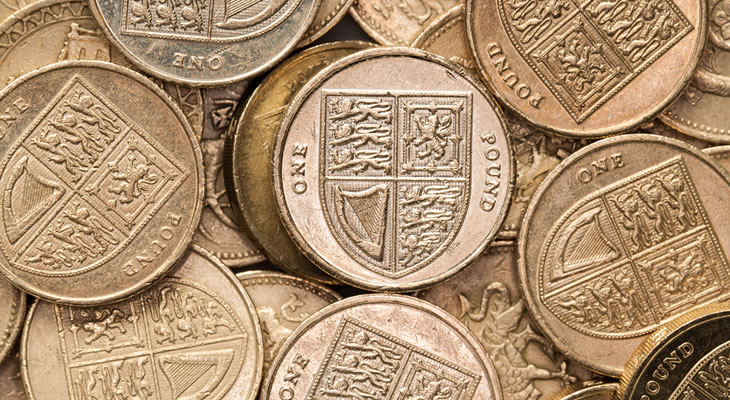Risk of Pound to Euro Exchange Rate Losses on Slower UK GDP Growth
The Pound (GBP) has traded in a narrow range against the Euro (EUR) today, although more broadly the GBP/EUR exchange rate remains near the best level since late June.
Pound Sterling demand has been limited today because of UK business uncertainty about Brexit; there may be additional losses ahead on Wednesday’s UK ecostats.
The headline data is August’s GDP growth rate reading, which is currently forecast to decline from 0.3% to 0.1%.
A drop in GDP growth might unsettle GBP traders and cause midweek Pound to Euro exchange rate losses, given the negative implications of such data.
Slowing GDP growth in the run-up to the November Brexit deadline creates a bad precedent and might drain GBP trader confidence.
Will Wider UK Trading Deficit Ensure GBP/EUR Exchange Rate Losses This Week?
Wednesday is this week’s main data day for GBP traders; another major piece of UK data will be the morning’s trade balance reading for August.
The measurement of UK imports and exports is predicted to show a worsening of July’s £-0.111bn deficit with a shift to £-1.8bn.
Such a result, or a larger-than-expected deficit, could extend any existing GBP/EUR exchange rate losses on Wednesday.
A larger trade deficit means that the UK is importing more goods than it exports, which is bad news for UK manufacturers and overseas exporters.
Euro to Pound Sterling (EUR/GBP) Exchange Rate Forecast: Can the Euro Recover on German Trade Data?
The Euro’s (EUR) losses against the Pound (GBP) today come after news of poor German industrial production during August – levels of output remained negative.
There had been expectations for a rise from -1.3% to 0.4%, but the actual reading showed a still-negative -0.3% result.
German industrial production levels have been negative for most of 2018, so today’s data has done little to reassure Euro traders.
The Euro could regain lost ground on Tuesday morning, when Germany’s trade balance reading for August is released.
This is tipped to show a notable increase in the national trading surplus, with a shift from €16.5bn up to €19.1bn.
Germany has maintained a large trading surplus since the 1990’s, so a continuation of this could raise Euro trader confidence and push the EUR/GBP exchange rate up.
Will Higher German Inflation Rates Trigger EUR/GBP Exchange Rate Rise?
This week’s other major Eurozone data isn’t due out until Friday, when finalised German inflation rate stats will be released.
Covering price growth in September, these readings are tipped to confirm an acceleration for the month-on-month and year-on-year figures.
Higher German inflation could lead to higher Eurozone-wide inflation rates, so the Euro could rise sharply against the Pound on such news.
Increased inflation puts more pressure on the European Central Bank (ECB) to consider raising interest rates; such conditions might boost Euro trader confidence.


Comments are closed.